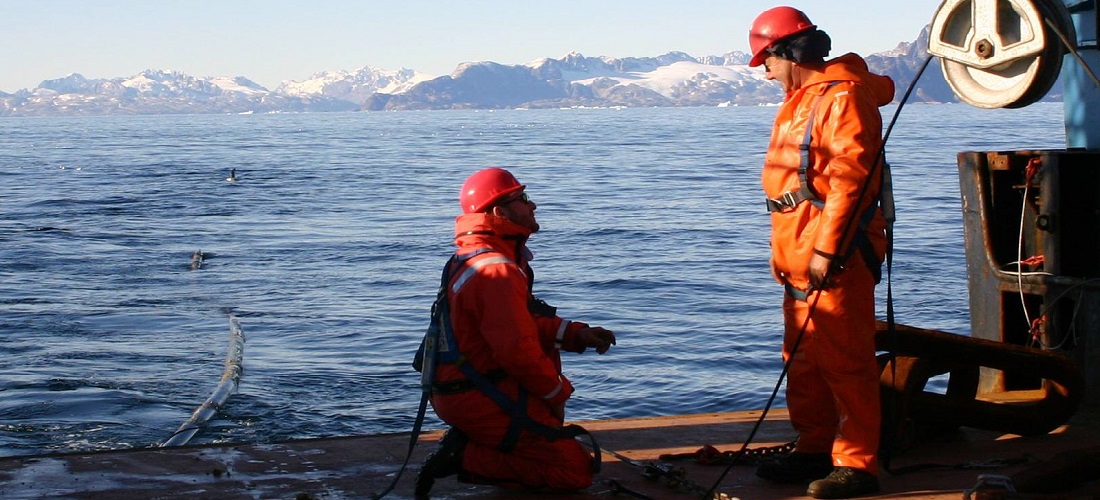
Lack of seafarers challenges cabotage, quality of port service throughout Brazil
Jul, 04, 2024 Posted by Gabriel MalheirosWeek 202426
The insufficient number of Merchant Marine officers, known as seafarers, will significantly impact Brazilian shipping by 2030, leading to a deficit of professionals ranging between 2,000 and 4,000. This conclusion comes from research conducted by the Vanzolini Foundation and the Center for Innovation in Logistics and Port Infrastructure (Cilip) at the University of São Paulo (USP).
Commissioned by the Brazilian Association of Cabotage Shipowners (Abac), the National Union of Maritime Navigation Companies (Syndarma), and the Brazilian Association of Maritime Support Companies (Abeam), the study took approximately six months to be completed and was presented last month.
“The lack of professionals harms the quality of operations since we cannot always select the best officers and end up having to use those available. They do not always meet the highest standards,” states Abac’s executive director, Luís Resano. “The unfolding horizon is worrying,” adds Syndarma president Gustavo Machado.
The research processed 432,000 different scenarios. The results indicate that only in 18,166 scenarios, or 4.2% of the total, would there be no labor shortage. “This is a very small percentage, and it can be said that scenarios with no shortage of officers involve annual demand growth of 1%,” the document notes.
“The legislation requires Brazilian-flagged ships to operate with Brazilian seafarers. Consequently, there will be significant damage, seriously compromising this condition. With the BR do Mar program, the idea was to expand the Brazilian flag fleet. If there are not enough seafarers, what are we going to do? This will cause a shortage of ships due to a lack of labor, compromising customer service,” argues Resano.
Among the scenarios, the one with the greatest lack of seafarers showed a deficit of 11,363 professionals, while the most positive balance showed a surplus of 1,181 officers. On average, the expected shortage is 3,930. “It can be said, based on these results, with high reliability, that there will be a shortage of officers in 2030, likely between 2,000 and 4,000 professionals,” the study attests.
Energy at Sea
Machado further specifies the future losses, classified as “immeasurable,” which will compromise the regular supply of cabotage transport and impact the oil and gas industry. It is worth noting that 97% of national exploration takes place in maritime fields.
“There is a growing demand for maritime support vessels in the country, driven by Petrobras’ business plans, in addition to the intended exploration of oil and gas in the Equatorial Margin (located between the states of Amapá and Rio Grande do Norte), which could become a new pre-salt,” he explains.
Furthermore, Machado emphasizes the necessary use of maritime support vessels for the new exploration and production of energy at sea, generated from wind turbines, and for creating offshore wind farms. This initiative, notes Machado, will certainly require more officers, who will also be employed in maritime units and platforms in significant numbers.
“All these projects, combined with the rapidly growing demand for cabotage and the Transpetro fleet, point to the need for the immediate creation of new jobs and employment of Merchant Marine professionals,” he adds.
To avoid the deficit of between 2,000 and 4,000 professionals estimated for 2030, the research recommends that the Navy train at least 500 more seafarers per year.
“We have always been warning the Navy to train more seafarers because the demand, when it occurs, is immediate. And it takes four years to form. The Navy is always reluctant, saying it has heard from the category’s union that there is a surplus of officers and a lack of jobs, so it is not training more seafarers,” says Resano. “Opening the maximum number of vacancies annually and consistently would certainly avoid large variations,” adds Machado.
Actions
In meetings with the Directorate of Ports and Coasts, responsible for training seafarers, Gustavo Machado revealed that solutions are being developed for 2025. Among these actions are increasing openings in training schools and modernizing training courses for Nautical and Machinery officers.
“Syndarma also understands that it is necessary to reformulate the policy for disbursing resources from the Maritime Professional Education Development Fund, allowing schools to have facilities that are permanently modernized and adapted to follow the development of vessels,” argues Machado.
Disservice
Machado further classifies the failure to use maximum training capacity as a disservice to the Brazilian population, harming the country’s development and needing urgent correction.
“The training provided by the Navy prepares qualified, higher-level professionals for the market, enabling them to occupy thousands of jobs. These professionals have the potential to be utilized in various other sectors of the Brazilian economy, such as municipal, state, and federal public service careers; industrial parks of all types; and middle and senior management positions in maritime and river transport companies, among others,” he lists.
Source: A Tribuna
Click here to access the original text: https://www.atribuna.com.br/noticias/portomar/falta-de-maritimos-desafia-cabotagem-e-afeta-qualidade-do-servico-em-todo-o-brasil-1.4246961′
-
Coffee
Jan, 27, 2023
0
Brazil’s January coffee bag shipments at 2.018 million units
-
Ports and Terminals
Jul, 24, 2024
0
Santa Catarina Ports to Surpass Santos in Container Throughput by 2027
-
Grains
Jan, 12, 2023
0
Conab: Brazil grain harvest down to 310.9 mln tonnes in MY 2022/23
-
Ports and Terminals
May, 19, 2023
0
Company employs same vessel for container, vehicle shipment at Montevideo

